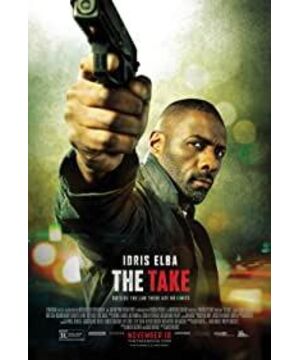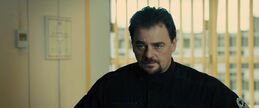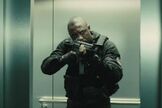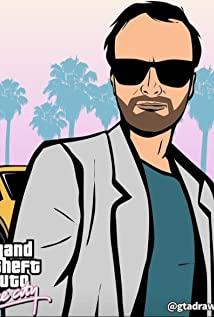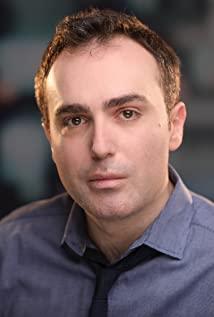Although "Paris Crisis" has a wonderful plot full of dangers and ups and downs, it still falls into the routine mode of personal heroism. It is true that the film is fascinating in one go, and the panic of the people caused by the explosion of the crisis and the TV news broadcasts are presented to the audience like instant news. It makes for a very watchable action movie. But it doesn't stop there, except for the thrilling fights and slightly humorous details left to the public after watching, there is no theme that can cause the audience to think deeply. It may be more practical to define the film as a story about "how should people save themselves when a terrorist attack occurs?", after all, Paris suffered a shocking terrorist attack last year, and the real tragedy is around you , so close at hand, such readily available material blueprints, I don't understand why director James Watkins didn't use the material on the spot to adapt this incident into a movie to play a deafening warning role, but he started to look for it, and weaved a new one. The appearance of violence and fear is actually a corrupt story of infighting.
Such a story, no matter how exciting and endearing it is, is too far from the lives of the people, and can only be regarded as a floating drama with a wide-open brain at best. What's more, corruption within the bourgeoisie is also examined by its own judicial organs, so what does it have to do with the CIA? The French government is not in a hurry, why is the CIA on pins and needles? If the corruption of the Paris police department can only be solved by the CIA in the United States, can it be understood that the French government is gradually receding into a puppet of the American government?
The film attempts to construct a huge corruption pattern, which is so huge that it seems that the entire country has been invaded by the "corrupt army", and the police chief of Paris has also become the king of the world. "The police were dispatched, the masses demonstrated, and the police chief's "arrogant and majestic" made headlines. Such a stormy event happened in Paris, the capital of France. How could the bosses of the Palace of Versailles be so calm and indifferent? Is this an insult to the IQ of the French government or a slamming of their inaction? In fact, if you think about it carefully, this is really the director's own flaw. The network is enlarged, but it is difficult to recover. If you go forward bravely and fight to the end, you will burn all your savings. But since the net has been cast, and it can't be abandoned, it's probably just a mistake, and the "terrifying oolong" will be carried through to the end.
Yes, the essence of the so-called "Paris Crisis" is nothing but an "Oolong Crisis". As long as the police chief is investigated and dealt with, the evil spirit will be eliminated naturally, and Paris will be restored to peace immediately. This simple and arduous task falls on a pair of "funny" partners. In order to increase the comedy effect of the film, the first 20 minutes of the film try to create a comedy atmosphere of "no coincidence is a book". The director's ingenuity Next, the rhythm and contradictions have achieved the expected effect, and made a natural and fascinating portrayal of the subtle transformation of the two "funny" male protagonists from enemy criminals to partners. This is the most successful part of the film. But at the same time it's not a small injury. Because behind this series of ingenious contradictions is at the expense of objective logic, it does not appear naturally according to the trend of the plot itself. Like a statue created by a skilled carpenter with concentration, every stroke falls into a given groove. For example, when the agent Blair interrogated the thief Mason, not only did he not bring him back to the headquarters for a detailed review, but he believed his innocence with only a few words, and he also intended to include him in the organization and quickly became a partner with him. Is the CIA's investigation of the case so sloppy and perfunctory? Even if Mason was wronged and framed, he had bad luck, but he was still a terrorist suspect, so he didn't need to go through layers of scrutiny? And the head of the CIA, Karen, was shot and killed by the police chief. Why did the CIA not respond? People are not grass and trees, and they can be ruthless. Even if the CIA is inconvenient to hold the murderer responsible for various reasons, shouldn't it be sad? The CIA's zombie-like response is truly surprising. There are still many such flaws, so I will not list them here for the time being. In short, this movie is really exciting and enjoyable to watch, and I will not regret it after watching it, but it must not be analyzed in depth.
View more about The Take reviews


